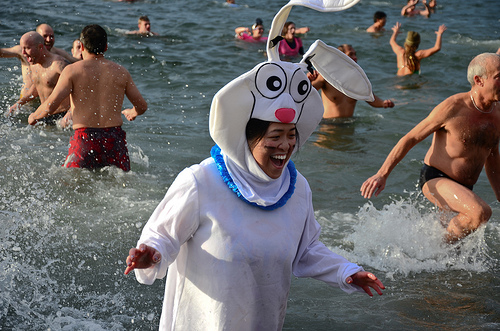 |
| David modelling his Tang jacket |
That's why we call it show and tell. First, you show the object to the class . Then, you talk about what it is, where you got it, why it is important to you, or to your culture, whether it has a historical or an emotional story behind it
A few days ago,my student David brought in a beautiful tang jacket, which he modeled. He gave a short, but very interesting talk about the jacket and how it has come back into fashion - especially during the Spring Festival. The non Asian students in class were very interested and had many questions.
More about the Tang jacket
A tangzhuang (Chinese: literally "Chinese suit" is a Chinese jacket that originated at the end of the Qing Dynasty (1644–1911).
Tangzhuang evolved from Magua ( a Manchu clothing, which was in turn adopted by the Han Chinese during Qing Dynasty.
At that time, only noblemen, aristocracy and government officials were
wearing it, however, in modern times it was eventually adopted by common
people.
Tangzhuang has become one of the 3 main formal men's dress wear in China behind Zhongshan suit and western suit. Tangzhuang is usually made in different colors, most commonly red, dark blue and gold etc for creating a harmonious, joy and festive atmosphere.
Tangzhuang has become one of the 3 main formal men's dress wear in China behind Zhongshan suit and western suit. Tangzhuang is usually made in different colors, most commonly red, dark blue and gold etc for creating a harmonious, joy and festive atmosphere.
One common design is the usage of Chinese characters (Hanzi, 汉字) as monogram such as Fu (福,'happiness' in Chinese), Shou (寿, 'longevity' in Chinese) to spread good luck and wishes.
Now wearing Tangzhuang at important occasions such
as formal partyiesm festivals and celebrations has become a trend for
Chinese men while women will usually wear Qipao to match them.
























